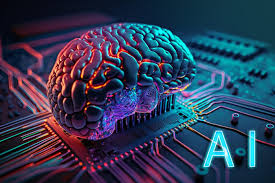In the rapidly evolving realm of artificial intelligence (AI), navigating the ethical landscape is paramount. As AI systems become increasingly integrated into society, they raise a host of ethical concerns that must be addressed. From issues of bias and fairness to questions of accountability and transparency, the ethical implications of AI touch upon every aspect of its development and deployment.
One of the primary challenges in navigating the ethical landscape of AI is the issue of bias. AI algorithms, trained on vast datasets, have the potential to perpetuate and even exacerbate existing biases present in society. Whether it’s gender, race, or socioeconomic status, biased AI systems can lead to discriminatory outcomes, further entrenching inequality. Addressing bias in AI requires careful consideration at every stage of the development process, from data collection and algorithm design to testing and implementation.
Transparency and accountability are also crucial ethical considerations in AI. As AI systems become more complex and autonomous, it’s essential to understand how they arrive at their decisions and who is responsible when things go wrong. Ensuring transparency in AI systems, by providing explanations for their decisions and actions, can help build trust and mitigate concerns about their potential impact. Similarly, holding developers and operators accountable for the outcomes of AI systems is essential for promoting responsible AI deployment.
Privacy is another key ethical concern in the age of AI. As AI systems collect and analyze vast amounts of data about individuals, there’s a risk of infringing on their privacy rights. From facial recognition technology to predictive analytics, AI has the potential to erode privacy in ways that were previously unimaginable. Safeguarding privacy in the age of AI requires robust data protection laws, strict adherence to privacy principles, and mechanisms for obtaining informed consent from individuals whose data is being collected and processed.
Despite the myriad ethical challenges posed by AI, there are also solutions that can help mitigate these concerns. One approach is to integrate ethical considerations into the design and development of AI systems from the outset. By adopting ethical design principles and conducting thorough ethical assessments, developers can identify and address potential ethical issues before they arise. Additionally, interdisciplinary collaboration between experts in AI, ethics, law, and other relevant fields can help foster a more holistic understanding of the ethical implications of AI and develop frameworks for addressing them.
In conclusion, navigating the ethical landscape of artificial intelligence requires careful consideration of the challenges and solutions it presents. By addressing issues of bias, transparency, accountability, and privacy, we can harness the potential of AI while ensuring that it aligns with our values and ethical principles. Through collaboration, innovation, and a commitment to responsible AI development, we can build a future where AI benefits society while respecting the rights and dignity of all individuals.
